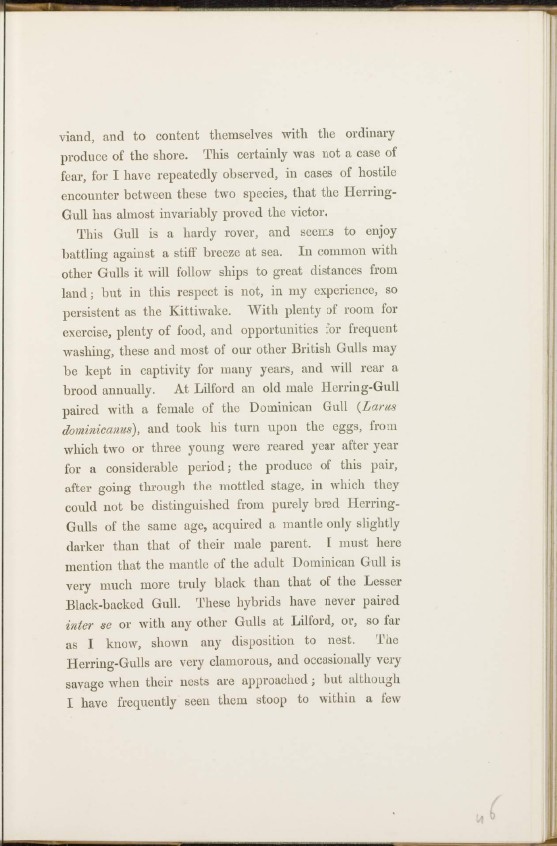
viand, and to content themselves with the ordinary
produce of the shore. This certainly was not a case of
fear, for I have repeatedly observed, in cases of hostile
encounter between these two species, that the Herring-
Gull has almost invariably proved the victor.
This Gull is a hardy rover, and seems to enjoy
battling against a stiff breeze at sea. In common with
other Gulls it will follow ships to great distances from
land; but in this respect is not, in my experience, so
persistent as the Kittiwake. With plenty of room for
exercise, plenty of food, and opportunities for frequent
washing, these and most of our other British Gulls may
be kept in captivity for many years, and will rear a
brood annually. At Lilford an old male Herring-Gull
paired with a female of the Dominican Gull (Lams
dominicanus), and took his turn upon the eggs, from
which two or three young were reared year after year
for a considerable period; the produce of this pair,
after going through the mottled stage, in which they
could not be distinguished from purely bred Herring-
Gulls of the same age, acquired a mantle only slightly
darker than that of their male parent. I must here
mention that the mantle of the adult Dominican Gull is
very much more truly black than that of the Lesser
Black-backed Gull. These hybrids have never paired
inter se or with any other Gulls at Lilford, or, so far
as I know, shown any disposition to nest. The
Herring-Gulls are very clamorous, and occasionally very
savage when their nests are approached; but although
I have frequently seen them stoop to within a few